Copyright 2008
Definition
Rupture occurs in 25% of patients. Factors that predispose to aneurysmal rupture include large aneurysm size, presence of hypertension and chronic obstructive pulmonary disease (COPD).

This digital angiogram of an infrarenal, fusiform abdominal aortic aneurysm, shows an expanded and tortuous aortic lumen. In the first image, the angiogram shows only the luminal changes while in the second image, the CT is able to reflect both the thickened thrombus-filled wall and the lumen. The size is best evaluated on cross-sectional imaging where the outside edges of the wall are seen to best advantage. (b). Note there is a large thrombotic component only appreciated on the CT scan. A horseshoe kidney is vaguely outlined on the angiogram, but is quite obvious on the CT scan. This is an essential piece of information for the surgeon, and makes the surgery that much more difficult.
Courtesy of Ashley Davidoff, M.D.
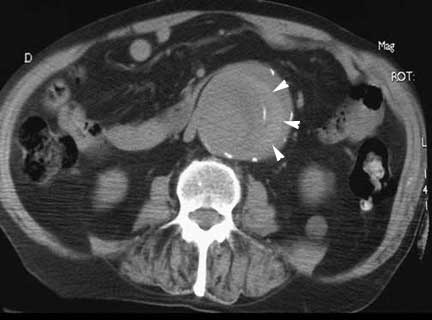
There is a hyperdense crescent (arrows) between two layers of calcification that reflects acute bleeding into the thrombus of this AAA. This sign is called the “crescent sign” and infers impending rupture of the aneurysm.
Ashley Davidoff, M.D.
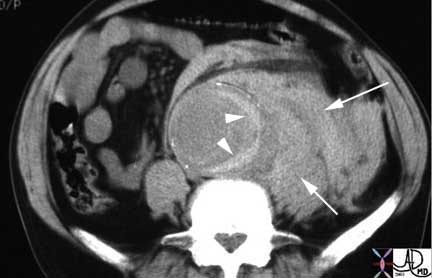
The CT scan of the abdominal aorta reveals an acute rupture characterized by a high density crescent-shaped density of acute blood (arrowheads) within the chronic thrombus of the aortic lumen. The extra luminal component of the rupture is seen as high density acute blood in the retroperitoneum (arrows).
Images courtesy of: Ashley Davidoff, M.D.
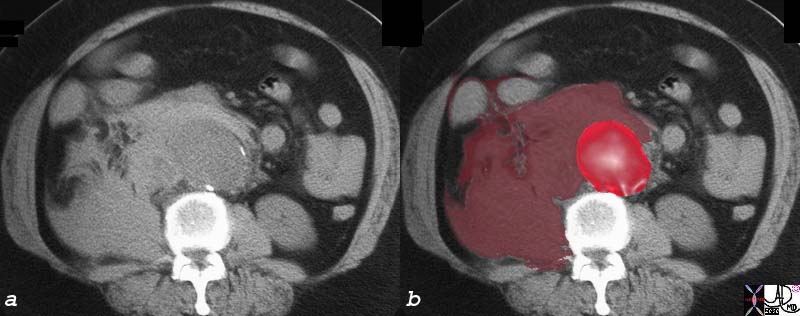

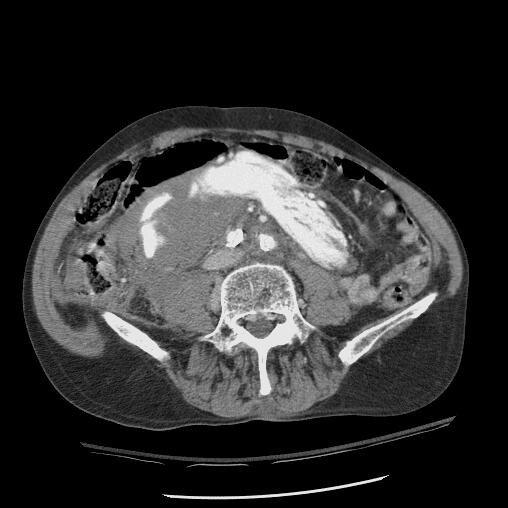




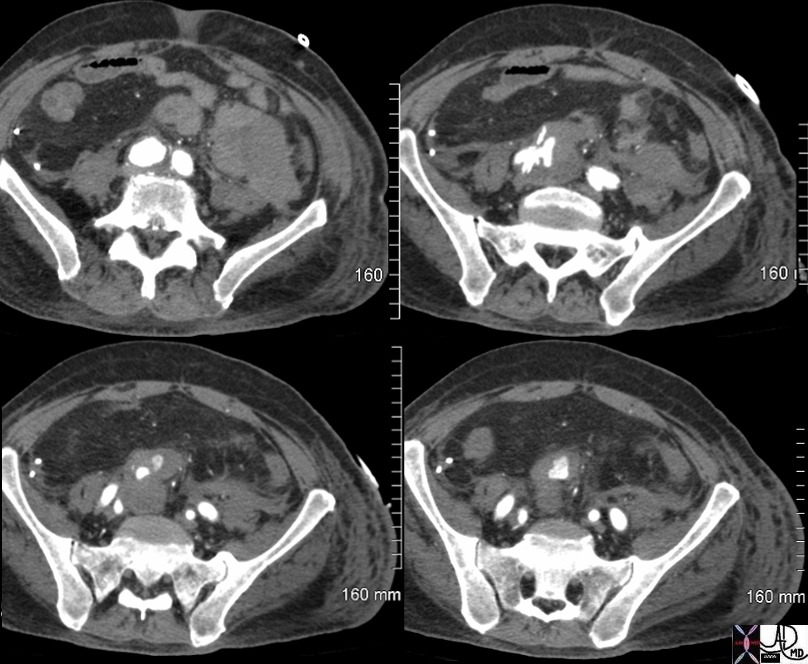
Ruptured Pseudoaneurysm of the Right Common Iliac Artery |
| 75727c01 elderly man with acute pelvic and back pain aorta iliac artery RLQ right lower quadrant artery pseudoaneurysm ruptured aneurysm retroperitoneal hematoma hemorrhage CTscan Courtesy Ashley Davidoff MD Courtesy Rebecca Schwartz MD 75727c01 75727c02 75724c01 75727c03 |
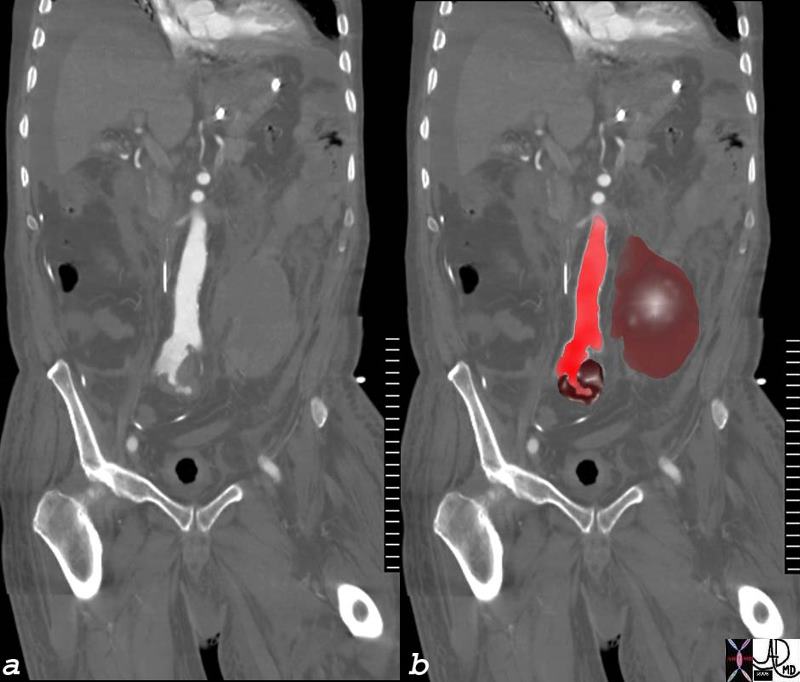
Ruptured Pseudoaneurysm of the Right Common Iliac Artery |
| 75724c01 elderly man with acute pelvic and back pain aorta iliac artery RLQ right lower quadrant artery pseudoaneurysm ruptured aneurysm retroperitoneal hematoma hemorrhage CTscan Courtesy Ashley Davidoff MD Courtesy Rebecca Schwartz MD 75727c01 75727c02 75724c01 75727c03 |
